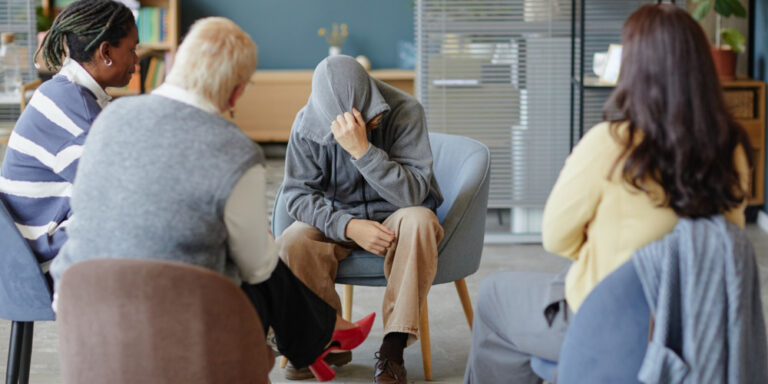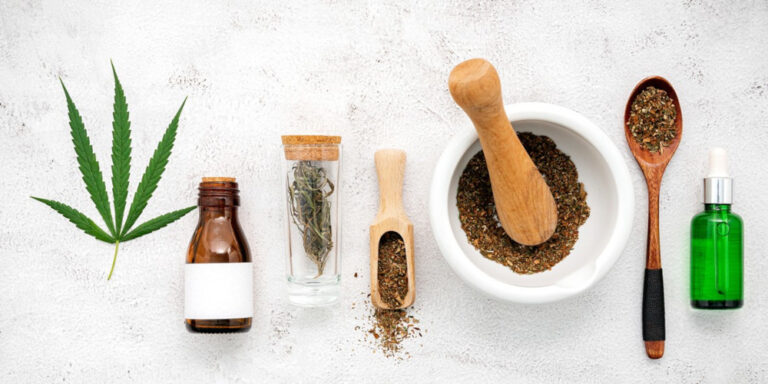We live in a world that rewards anxiety. The anxious student is called “driven.” The anxious employee is “a perfectionist.” The anxious parent is “always on top of things.” We celebrate it because it looks like productivity, until it doesn’t.
Anxiety isn’t just nervousness or overthinking. It’s a full-body takeover, racing heart, tight chest, spiralling thoughts, and a constant sense that something bad is about to happen. For some, it’s mild and manageable. For others, it’s a silent form of addiction, an endless cycle of fear, control, and exhaustion that runs their entire life.
The hard truth? You don’t have to use drugs or alcohol to be an addict. You can be addicted to anxiety itself, to the rush, the vigilance, the need to control everything. It becomes a way of feeling alive, even as it slowly burns you out.
Anxiety Is the Body’s Alarm That Never Switches Off
Anxiety is supposed to keep us safe. It’s the alarm system of the body, triggered by danger, designed to get us ready to act. But in modern life, the “danger” never ends. Deadlines, finances, social media, expectations, the brain treats them all as threats.
Over time, the alarm stops distinguishing between real danger and imagined stress. It just keeps ringing. You wake up tense, go to bed wired, and live in a constant loop of worry and fatigue.
This chronic state of fear becomes addictive because the body gets used to it. You start to associate calm with laziness or danger. You look for things to worry about just to feel normal. That’s when anxiety stops being a feeling, and becomes a lifestyle.
The Connection Between Anxiety and Addiction
Many people who struggle with substance abuse aren’t trying to get high, they’re trying to get quiet. Drugs and alcohol become a form of self-medication, a temporary break from a mind that won’t shut up. Alcohol slows racing thoughts. Sedatives numb panic. Stimulants give you energy when anxiety drains you. Even behaviours like overworking, exercising obsessively, or doom-scrolling social media can be ways to escape anxiety’s grip.
But it never lasts. The relief turns into dependence, and the dependence deepens the anxiety. Soon you’re trapped in a loop, you use to calm the fear, but the fear grows every time the substance wears off.
In treatment, counsellors often find that beneath every addiction lies untreated anxiety. Once that root is addressed, real recovery begins.
The Lie Anxiety Tells You, “You Need Me”
Anxiety convinces you it’s useful. It tells you that worry keeps you sharp, cautious, and prepared. It tells you that if you relax, you’ll fall behind or lose control.
But that’s the trick. Anxiety doesn’t protect you, it enslaves you. It gives you the illusion of control while taking it away. You start managing life around your fears instead of through them. You avoid people, situations, and opportunities that make you uncomfortable, and call it “being careful.”
The longer you listen to anxiety, the smaller your world becomes.
The Anxiety Trap in Recovery
For people in addiction recovery, anxiety can be brutal. Sobriety removes the numbing agent, leaving raw nerves exposed. Suddenly, all the feelings that were buried under alcohol or drugs come rushing back. Many people relapse not because they want to use, but because they can’t handle feeling again. Anxiety convinces them they can’t survive without their old coping mechanism.
This is why professional help during early recovery is essential. Therapists and counsellors teach grounding techniques, mindfulness, and emotional regulation skills, tools that calm the mind without numbing it. Because if anxiety goes untreated, relapse becomes almost inevitable.
How Anxiety Hides Behind “High-Performance”
Some of the most anxious people look the most successful. They’re the ones who never stop moving, always working, always proving. But their achievements are driven by fear, not passion. Anxiety hides well in ambition. You can’t see the sleepless nights, the racing thoughts, the overthinking of every interaction. From the outside, it looks like motivation. Inside, it’s panic.
Eventually, high-functioning anxiety collapses under its own weight. The constant stress leads to burnout, physical illness, or emotional breakdown. What looks like strength is actually survival, and no one can survive in overdrive forever.
The Social Media Effect, A Culture of Comparison and Constant Fear
If anxiety had a breeding ground, it would be social media. Every scroll reinforces the idea that everyone else is happier, thinner, richer, more in love, more fulfilled. You measure your private chaos against everyone else’s highlight reel.
Even worse, social media algorithms reward outrage and fear. The content that gets the most attention is the content that keeps you anxious, news, drama, conflict. It’s digital adrenaline.
Constant exposure to that emotional noise keeps the nervous system on alert 24/7. It’s no wonder so many people lie awake at night, scrolling themselves into panic.
The Physical Toll of Chronic Anxiety
Anxiety doesn’t just live in your head, it lives in your body. Chronic stress floods the system with cortisol and adrenaline, hormones meant for fight or flight. Over time, they break you down. Migraines, stomach problems, high blood pressure, muscle tension, insomnia, all are symptoms of a body under siege. The immune system weakens, memory fades, and exhaustion becomes a way of life.
Many people visit doctors for these symptoms and leave with prescriptions, never realising that anxiety is the root cause. That’s why treatment has to go beyond medication. The mind and body must heal together.
What Recovery from Anxiety Really Looks Like
Recovery from anxiety isn’t about becoming fearless. It’s about learning how to feel fear without letting it rule you. It means retraining your nervous system to recognise safety again. It means replacing avoidance with acceptance, and panic with presence. It’s slow, uncomfortable work, but it’s possible.
Therapy, mindfulness, and sometimes medication can help balance the brain’s chemistry. But the real shift happens when people stop trying to get rid of anxiety and start learning to live alongside it. You don’t need to eliminate fear. You just need to stop letting it drive.
The Family Side, When Anxiety Becomes Contagious
Anxiety doesn’t stay contained in one person, it spreads. Families often absorb it without realising it. When a parent is anxious, children learn to interpret the world as dangerous. When a partner is anxious, the household becomes tense and reactive.
In families touched by addiction, anxiety multiplies. The constant uncertainty, waiting for the next crisis, the next relapse, the next phone call, keeps everyone on edge. Over time, that stress becomes its own trauma.
Family therapy is crucial, not just to help the addicted person recover, but to help the family learn how to calm their own nervous systems. Healing is a collective process.
The Tools That Actually Work
There’s no quick fix for anxiety, but there are effective tools:
- Grounding: Simple sensory exercises, naming five things you see, four you feel, three you hear, to pull you out of racing thoughts.
- Breathwork: Slow, controlled breathing to regulate the nervous system.
- Routine: Structure brings stability when the mind feels chaotic.
- Therapy: Cognitive Behavioural Therapy (CBT) helps identify and challenge anxious thought patterns.
- Movement: Exercise releases natural endorphins that counteract stress hormones.
- Boundaries: Limiting exposure to social media, toxic environments, and emotional triggers.
Recovery isn’t about “fixing” yourself. It’s about managing the symptoms, understanding your triggers, and choosing peace over panic, over and over again.
The Courage to Ask for Help
In South Africa, we’re taught to tough things out, to smile, pray, or work harder. But untreated anxiety can be just as dangerous as addiction. It destroys health, relationships, and hope.
The bravest thing you can do isn’t to endure it. It’s to speak about it. Call a counsellor, see a therapist, talk to someone you trust. Anxiety loses power the moment it’s brought into the open.
At We Do Recover, the goal isn’t just to get people sober, it’s to help them heal from what made them reach for substances in the first place. And for many, that begins with treating anxiety.
Because when you calm the mind, you give recovery a fighting chance.










